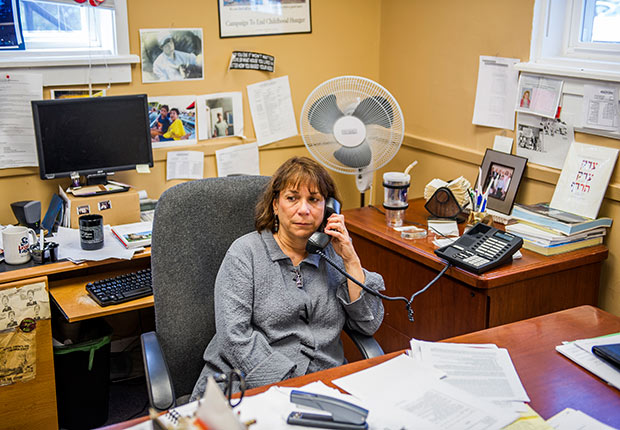AARP Hearing Center

By Holly Fisher
It’s tough for Sue Berkowitz when people call the South Carolina Appleseed Legal Justice Center requesting help for their health care needs. A nonprofit advocating for low-income South Carolinians, the center isn’t a service organization, so it does its best to point people to resources.
“There’s nothing harder than when someone with a chronic illness contacts us saying they don’t know what to do,” said Berkowitz, the center’s director.
Those calls motivate Berkowitz to continue the fight for Medicaid expansion. South Carolina is one of 21 states that have not expanded Medicaid under the Affordable Care Act (ACA). That decision leaves 194,000 people in a “coverage gap,” primarily because they make too much money to qualify for Medicaid but not enough to obtain federal subsidies to purchase private insurance.
Gov. Nikki Haley (R) and legislative leaders oppose expanded coverage under the ACA, also known as Obamacare. “We emphatically said no to the central component of Obamacare, the expansion of a broken Medicaid program that is already cannibalizing our budget, and would completely destroy it in the years to come,” she said last year.
But advocates for expansion vow to keep pushing. They point to Kentucky, which expanded Medicaid in 2013. A recent study commissioned by that state found the change brought in $1.16 billion the first year, creating more than 12,000 jobs.
In South Carolina, 1.1 million people are served through Medicaid, the massive federal-state program marking its 50th anniversary this month. Medicaid covers working parents with annual incomes below $7,298 (individual) or $9,877 (for a couple) as well as low-income adults 65 and older, children, the disabled and pregnant women.
The current Medicaid budget in the state is $6.8 billion, with federal funds accounting for more than two-thirds of the total.
More managed care
In recent years, the state has moved from a “fee for service” program to a managed care approach. The goal is more efficient and effective care, said Christian L. Soura, director of the state Department of Health and Human Services.
"This transition is one of several intended to change the incentives for health care providers so that we stop rewarding them for billing Medicaid for more services and start paying insurers, hospitals and doctors for improving the health of the members they serve,” he said.
The state also has created programs that enable Medicaid beneficiaries to receive care at home, which costs much less than institutional care. Soura noted that residents 65 and older account for 6 percent of Medicaid enrollment but 15 percent of projected expenditures for the 2014-15 fiscal year.
About 70 percent of all nursing home residents are covered by Medicaid, Soura said. “Providing seniors with choices and with the ability to stay at home or in a residential setting, as long as they choose and are able to, is a continuing priority for the agency.”
Yet there are still 63,000 uninsured people 50 to 64 who are too young for Medicare and don’t qualify for Medicaid.
Coretta Bedsole, AARP South Carolina associate state director for advocacy, said many in this age group lost their jobs or have low-wage jobs. “These are people who are housekeepers and hospitality workers and don’t make enough to purchase insurance,” she said.
AARP South Carolina is one of 15 organizations in Close the Gap SC, a coalition advocating for better health coverage for all residents. Advocates point out that federal funds would pay the full cost of coverage for those added by Medicaid expansion until 2017, declining to a 90 percent share by 2020.
A group of state senators revived the Medicaid expansion conversation in the last months of the state legislative session, suggesting a private option that has been adopted in states such as Arkansas, Kentucky and Indiana. But the bill died for lack of support.
Rozalynn Goodwin, vice president for community engagement at the South Carolina Hospital Association, said, “Our association will continue to educate and encourage our legislators to not send our dollars to other states but reclaim our [Medicaid] dollars and take care of our own working poor.”
Holly Fisher is a writer living in Mt. Pleasant, S.C.































































